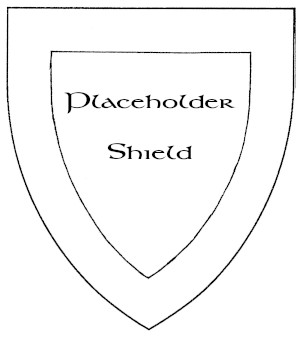Triune Republic (Tri-ˈOon)
After the fall of the Warlord Bralvarn Eaglestalker in 966 NE, and the subsequent rise to prominence of Zuth Flamekeeper from Clan Silverwing, many clans clamored for Zuth to be named Warlord, instead.
A Bold New Idea
Zuth had a different idea, a new one. What if, instead of warring clans, or oppressive overlords, everyone had an equal share in the government. The people were uncertain that this would work, but it sounded appealing, and Zuth's star was rising high. So a meeting was called, and all the Human tribes sent small delegations selected by the people. They almost universally picked their chieftains to speak for them, but there were others sent as well, wise women, and even promising young minds.A Bigger Table
When the meeting began, a delegation of Elves appeared, and politely but firmly insisted in a say in the new government. They reminded the Humans that they live on this land, too, although scattered and without tribe. Zuth agreed the Elves deserved a seat at the table, and went further. He sent messages out to the Dwarven people, inviting them to join this new coalition. The Dwarves accepted, and the delegates gathered to work out their new government. A preliminary agreement was hammered out, and Zuth was voted in unanimously to the role of First Delegate in 969.Rocky Start
This forming Republic had problems from the start. They allocated two representatives to each clan, as well as the Elves and the Dwarves. Right away there was muttering of how some clans were bigger than others, so deserved more of a say, or how the non-Human members only had two delegates to represent their whole species within the Republic. There was also complaining about equal representation within the Dwarven and Elven populations, between High and Wood Elves, and Hill and Mountain Dwarves. Gnomes and Halflings and others demanded representation as well. And everyone complained that Clan Silverwing effectively had three delegates instead of two, and one of them in a powerful role, with Zuth in charge of the ruling body.Attempts to Adjust
Many people suggested fixes, and changes were made: a proportional amount of delegates per clan, double the representation for Elves and Dwarves. Some one suggested dividing up areas by population, and not by clan. If the country were divided into districts with equal populations, and have them choose a representative, it would be more fair. A census was taken, which the Elves patiently endured, and the Dwarves refused to take part in, citing it as a tactical weakness to reveal their numbers. The Human reaction was varied, from interest, to fear, to outright paranoia.No Consensus on Census
Once the totals were back, the task of drawing up districts lay before the government. It took 3 years of arguing to hammer something out, but at last they finished. The First Delegate's powers were cut back to almost nothing, making him little more than a figurehead. The new districts now had 2 delegates each, the Elves had a total of 8. Because they refused to answer the census at all, Dwarves received their original 2. The Dwarves were livid, and refused to take part in the government at all. They retreated to their strongholds in 985.Lack of Foresight
Then came the time when Zuth, in his age, could act as First Delegate no more. The represenative body panicked. They had forgotten to account for this eventuality in their initial exuberance. Finally, they decided on a vote from the body, with candidates selected from the current delegates. There was a popular uproar that other names could not be nominated, but the Republic went ahead. Zuth Flamekeeper retired in 993, and Geldum Dawnstone took his place. There were more sources of unrest. Some delegates demanded a second census, to redraw the lines of districts, other delegates accused those whose neighborhood of forming pacts and coalitions. The Elves left the coalition in 1007, frustrated and feeling that their concerns and issues were not being addressed. The Triune Republic all but collapsed.Trouble In The Streets
Meanwhile, as the delegates fought amongst themselves, the needs of the people were not being met. They began to organize, especially in the cities. Farther reaches simply began governing themselves, reverting to their clans. Finally in 1008, a full blown rebellion began within the capital. Rebels and the Republic's fledgling armies clashed in the streets. Towns and cities within a horse's ride joined the revolt. The battle lasted 3 days and nights, and claimed many lives, including rebel leader Maldilm Cloudgust.A Bloody End
Ultimately, the rebels were victorious, and the Meeting House was torn down and burned. There were a few bloody weeks when delegates were hung or hunted down as they attempted to flee. With Cloudgust dead, there was no figurehead to coalesce around for a new government. It was not long before the peoples reverted to the clan system.Lessons Learned
Most people took away two lessons from this experiment, lessons that echo still today. They are better off with a strong leader who has good advisors than a representative government, and that Humans, Elves, and Dwarves cannot govern together.
In Unity, Strength
969 - 1008
Type
Geopolitical, Republic
Alternative Names
The Republic
Demonym
Triunean
Leader
Leader Title
Head of State
Government System
Democracy, Representative
Power Structure
Confederation


Comments